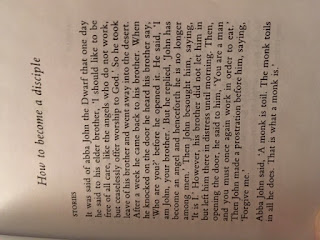The Opium Addict
Saint Mark Ji Tiangjing was in many ways an exemplary Catholic. As the doctor for his village and as a husband, father and grandfather, he was completely serious about living his faith.
But Mark had one big problem: during a bout of painful illness in early middle age, he self-medicated with opium. Mark's illness got better, but he soon realised he'd become dependent on the highly addictive drug he'd used to treat himself.
Mark's local priest had a hard time understanding. Not grasping the complexities of addiction, he reasoned that if his penitent kept confessing the same sin every time, he must not really want to change.
Mark was told not to come back to confession, nor to receive the Eucharist, until he returned to a respectable way of life.
For the next thirty years Mark's life was a solitary battle. He never kicked the addiction for all his prayer and all his effort, but his refusal to give up was preparing him for something greater.
In 1899 an anti-Western rebellion swept through China, and Chinese Christians were its primary targets. Mark was taken by the rebels along with his entire family. "Where are we going, Grandpa", his grandson asked him. Mark replied: "We're going home."
St Mark Ji Tiangjing is one of many Chinese martyrs, but his unique story helps us understand St Paul's maxim: "it is when I am weak that I am strong."
St Paul had pleaded with God to take away his 'thorn in the flesh', but had received the answer in prayer: "My grace is enough for you, my strength is made perfect in weakness" (Corinthians 12:7-10).
St Mark is a sign for all of us who suffer with a weakness we fear we may never overcome, that God can make us prayerfully dependent on him, not in spite of, but through those weaknesses.
The Unfaithful Priest
There's no getting around it: a Catholic Priest who doesn't hold fast to his vows is a disaster. Not only is he failing to live his vocation, he also weakens the faith of those around him. He's a sign of the corruption and scandal that the Church has always been plagued by.
So Saint Andreas Wouters, a deeply compromised priest in the 16thcentury Netherlands, is never going to be the subject of a long and edifying biography. Known to everyone as a drinker and womaniser, he was under suspension from his office when a group of extremist Protestants captured his hometown in 1572.
They'd already rounded up 11 Franciscans from a nearby friary and several other local priests (including one saintly Dominican who'd rushed into the town to try and help them).
Imprisoned in a barn with his brother priests and tortured, something changed for Andreas. When he was offered the chance to save himself by denying the Real Presence of Christ in the Eucharist, the weakness of his past life was transformed into the heroic virtue of perseverance.
Reconciled to the Church, he was hanged with the other captives shortly afterwards. Mocked by his murderers, he calmly replied "A fornicator, I was. A heretic, never."
Saint Andreas is a reminder for us that it's never too late – and the mess is never too big – to start again: as long as there's a single hour left to work in the Vineyard, the labourers can still earn their wages.
The Village Hellraiser
Blessed Franz Jäggerstätter was a husband, father and farmer who chose to be beheaded by the Nazis rather than join their army: the only person in his rural Austrian village who was willing to stand up to them.
That outstanding Christian witness, however, would not have seemed likely to anyone who knew him in his youth.
Franz owned a motorcycle, liked getting drunk and getting into fights, and fathered at least one child out of wedlock. You know the type. The son of unmarried parents himself, he'd been raised by his mother and step-father after his own father was killed in the First World War.
Things began to change when he met Franziska Schwaninger. The couple married when he was 29, and after she dragged him to Rome for a pilgrimage-honeymoon, Franz began to attend Mass daily and even to give alms, despite being a poor man himself.
Franz managed to defer his conscription to the German army four times, but in 1943 he was arrested for refusing to serve.
His parish priest and numerous others tried to persuade him to join, but he was sure he could not. Only his wife stood by him, agreeing that Nazi ideology was completely contrary to the Christian faith and could not be co-operated with.
Many argued that someone of his social standing didn't need to worry about this kind of question, if educated bishops and politicians were willing to go along with it. Others that his first duty was to his wife and children.
Franz held firm, saying that he had no right to take the lives of other husbands and fathers simply to protect his own. He was tried by a military court and executed shortly afterwards, at the age of 36.
The parallels between Blessed Franz and another martyr of conscience, Thomas More, are as striking as the differences between them.
Taken together, perhaps they show us that the external circumstances of our lives: background, education, even our past sins, are not quite as important as we might think they are. What really matters is how we respond in the hour that God calls us to be his witnesses.



















